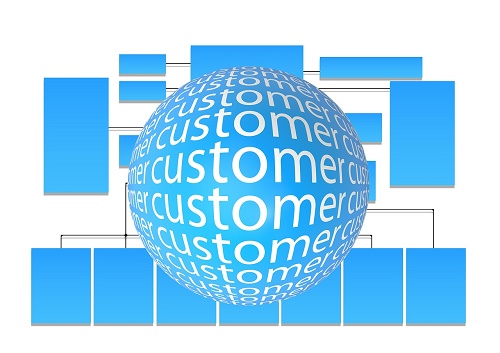The new tools of influence in the modern workplace

What drives us to reach our full potential? The opportunity to exercise influence and shape how things are done, according to CEB Global’s recent talent report.
Successful business people know that influence can make the difference between reaching their full potential or falling short and, keeping clients or losing them.
Our business success depends on our ability to influence people and outcomes.
The military model of ‘command and control’, or hard power was the first blueprint for workplace influence. “Get on the phone and don’t hang up until the customer buys or dies,” stockbroker Jordan Belfort orders his salespeople in the movie The Wolf of Wall Street. Belfort (the wolf in the title) exemplifies hard power.
Hard power rules through fear. It destroys discretionary effort, stifles creativity and crushes innovation.
This model worked in the industrial era, but it fails with knowledge workers who don’t respond to it. Hard power hurts -– you, other people and your chances of success.
Then, business professionals discovered soft power. Soft power influences through attraction, cooperation and connection.
Harvard Business professor Joseph Nye developed the concepts of hard and soft power.
But soft power has limitations in the influence stakes. Soft power is slow power -– it takes time. Soft power is also difficult to do well and is subtle, so it can miss its mark.
Hard power creates an impetus for action. Soft power if used well, sparks desire.
But what if we want to do both?
For more than a decade, I have been working with senior leaders in corporate Australia and globally to answer this. My work involves using the power of business storytelling as a tool to ignite both desire and action.
Other tools of influence
I have explored two further tools for influence in the modern workplace: empathy power and humour power.
Together, these three new tools for 21st century influencers help us engage and inspire our teams, clients and stakeholder.
Business storytelling is storytelling with a purpose and for results. Here’s a story shared by composer Benjamin Zander in his TED talk:‘Two English shoe salesmen were sent to Africa in the early 1900s to assess potential market opportunities there. Each sent a telegram back to their boss in Manchester. The first wrote, ‘Situation hopeless. They don’t wear shoes’. The other enthused, ‘Glorious opportunity! They don’t have any shoes yet’.
Zander links this story to his message: some people think classical music is dying while others see it as thriving. Story power inspires our audience to both action and desire.
Equally potent is empathy power. What sets us apart as a new influencer is a deep empathic understanding of our audience. Empathy is not sympathy –- feeling sorry for a person or indulging their self-pity. Empathy is recognising their perspective sufficiently to help generate change through action.
After the loss of AirAsia QZ8051 in December 2014, CEO Tony Fernandes immediately took off on the same flight path to be with the bereaved families. He continuously used social media to connect compassionately with them. His authentic, deeply empathic response at a traumatic time was widely praised.
With empathy power, our focus is external. For success, our attitude is one of courage and service. By caring for our audience, we understand what drives them, which helps us create connection and initiate courageous action.
And, finally, the success secret of mega influencers is humour power. Generating laughs is an official corporate goal at Southwest, a major US Airlines. Humour power is using humour skilfully, purposefully and appropriately to influence.
Humour is the new frontier in influence. We are often afraid to use humour because we think it might be unprofessional or unsuited to work.
However, humour is a skill that can be taught and learned. ‘Make ’em laugh to boost engagement, spur creativity and improve analytical precision,’ writes Alison Beard in a 2014 Harvard Business Review article.
Influence is the key to personal and professional success. Influencing others isn’t a dark art; it isn’t about luck or magic.
It is a skill that, when applied wisely, will help us to increase our impact and success. Wield it with authenticity and integrity for prosperity, profit and to realise our potential.
Yamini Naidu is the world’s only economist turned business storyteller and is rated among the top business storytellers globally. Best-selling author and key note speaker she works with leaders helping them shift from spread sheets to stories. Her new book is ‘Power Play: Game changing influence strategies for leaders’. You can learn more about Yamini on her website www.yamininaidu.com.au.





